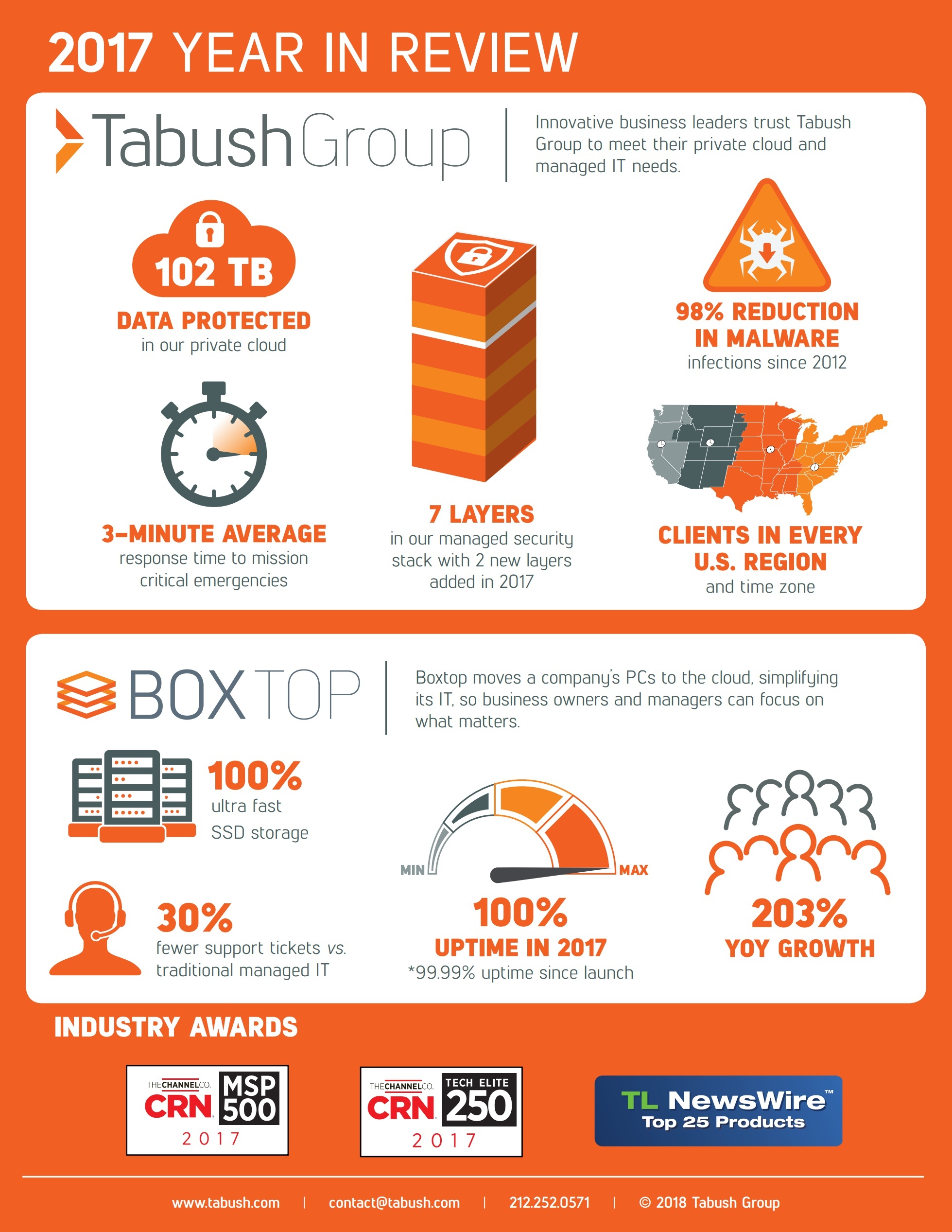We are proud to announce that Tabush Group has been named to CRN’s 2018 Managed Service Provider (MSP) 500 list on the MSP Pioneer 250 list. This annual list recognizes North American solution providers with cutting-edge approaches to delivering managed services. Their offerings help companies navigate the complex and ever-changing landscape of IT, improve operational efficiencies, and maximize their return on IT investments.











